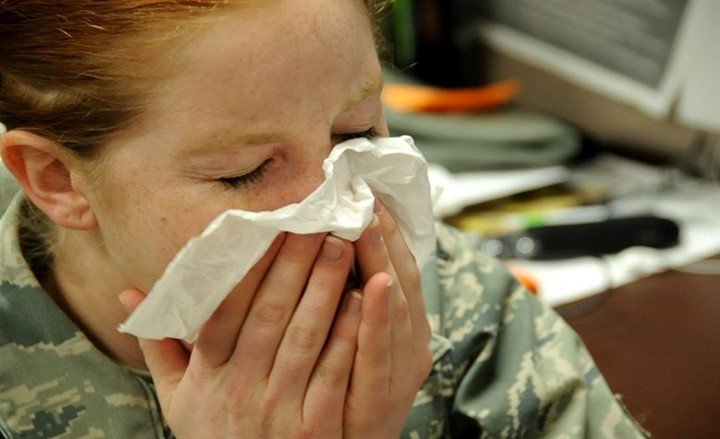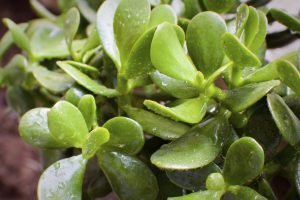It is a resilient plant that can withstand all harsh conditions, growing even in deserts and in all types of soil. This plant has a very tough root system and, when grown with other plants, surpasses these, becoming the only dominant plant in the area. If you are a lover of plants, you most probably know the plant that I am talking about; the Sunflower. However, is the Sunflower just that, a tough and resilient plant?
Medicinal Uses of Sunflower
Most people know sunflowers for their seeds and the production of oil. However, sunflower plants offer many other benefits than just oil production. Almost every part of a sunflower has its associated benefits; from agricultural benefits to medicinal benefits. This article will look into 25 medicinal uses of Sunflower.
1. Curing malarial fever
The leaves of sunflower plants have been proven to contain therapeutic properties, which help to cure malarial fever. This disease is usually associated with shaking and chills, and can even be fatal if left untreated.
2. Spider Bites
Just like snake bites, some spider bites are venomous and even fatal at times. Crushing sunflower petals, then mixing them with other herbs, can form a powder with substances that can neutralize the venom and bring about healing.
3. Arthritis

Arthritis condition is at most times associated with the elderly. It causes stiffness and swelling of joints. Sunflower leaves can be used to make a Poultice, which is then applied to the stiff joints. Application of the Poultice helps to reduce swelling of the joints, as well as reduce pain caused by the swelling.
4. Bronchial Coughs
Bronchial coughs can be easily controlled by boiling a mixture of sunflower petals, flowers, herbs, and balsamic, then drinking the resultant tea.
5. Gastroenteritis
Gastroenteritis infections are very common in children. They are associated with vomiting and diarrhea, caused by microorganisms. The leaves of sunflowers can be used to relieve these symptoms. You can boil the leaves in water, then drink the resultant tea.
6. Whooping cough
Whooping cough is pulmonary infection. If not controlled, it can spread and affect many people. Sunflower leaves contain properties that control and treat Whooping cough and associated fevers.
7. Gastrointestinal Tract
When sunflower leaves are boiled, they form a resultant tea. This tea has properties that can reduce inflammation of the gastrointestinal tract, usually brought about by bacteria toxins.
8.) Colds

Just like whooping cough disease, the common cold is also a pulmonary infection. Therefore, drinking tea, made from boiling a mixture of sunflower leaves and balsamic, can help in the treatment of the colds.
9.) Pulmonary Pneumonia
Harmful microorganisms, such as bacteria and fungi, can attack the lungs, causing pulmonary pneumonia disease. This disease causes coughs, chills, and high fevers in the infected. Drinking the resultant tea of boiled sunflower leaves can help to relieve the associated chest pains, as well as cure pneumonia.
10.) Ague and fevers
When boiled, Sunflower leaves produce a resultant tea with antipyretic properties. These properties help to treat ague and fevers chills, as well as the pain associated with malaria disease.
11.) Respiratory Tract
Certain infections and medical conditions tend to affect the bronchi and bronchioles of the respiratory tract. When these are affected, breathing becomes quite difficult. Hot tea made from boiling sunflower leaves can be used in treating the respiratory tract.
12.) Headaches

When you have a headache, rather than rush to the chemist and get an over-the-counter prescription, try using sunflower leaves for your headache. These leaves, when crushed, form a paste, which can be applied on the forehead to bring a person instant relief.
13.) Plasmodium bacteria
Plasmodium bacteria have negative effects when in the bloodstream of humans. Boiling Sunflower seeds and drinking the resultant hot tea can help to kill the plasmodium bacteria.
14.) Rheumatic Aches
Some joint infections can result in chronic rheumatic pains. Drinking a boiled concoction of sunflower seeds and herbs can help to bring a patient fast relief from these aches.
15.) Vivax bacteria
Vivax bacteria are responsible for causing recurring malaria in humans. The leaves of the sunflower plant can be used in the manufacture of a healing balm, which can kill the Vivax bacteria.
16.) Diuretic effects
The leaves of sunflower plants have been tested and proven to consist of diuretic properties. Diuretic properties are especially essential for people suffering from bladder infections and disorders, as they help in increasing urine excretion.
17.) Wound dressing
For open wounds and ulcers, the sunflower plant can be used for dressing. Make a Poultice using ground sunflower leaves, then apply this on the wounds. Leave it to dry. The sunflower leaves contain antibacterial properties that heal the wound within 2 to 3 days.
18.) Emollient Effect
The leaves and roots of the sunflower plant can be used for making a balm. This balm has soothing effects, such that rashes and allergies caused by skin irritations are controlled and prevented.
19.) Minimize Swellings and Inflammation
Sunflower leaves contain anti-inflammatory agents, which can minimize swellings and inflammations. These leaves can be crushed to make a Poultice, which is then applied to the affected parts.
20.) Stimulant
Like other types of tea, the resultant tea of boiling sunflower leaves is a stimulant. Being a stimulant, this sunflower tea helps to boost a person’s psychological levels, as well as increase brain activity.
21.) Insect Bites

Bites from insects can cause a lot of pain, itching, and swelling. Ground leaves of the sunflower plant, when applied on these bite areas, can do a miracle in bringing fast relief from pain and swelling.
22.) Antioxidant against Cancer
Sunflower leaves and roots have essential elements, such as Vitamin E and selenium. These elements help in the neutralization of free radicals, which are present in the foods we eat, as well as in the air, and can cause cancer. Therefore, when these sunflower parts are boiled and consumed, the antioxidants present help to protect people against cancer.
23.) Snake Bites
With dried sunflower leaves, snake bites can be maintained, and even cured. The petals of the leaves are crushed, then used to make a powder that can then be applied on the bite. This powder neutralizes the snake poison.
24.) Sore Throat
Tea made from boiling Sunflower petals provides an instant cure for sore throat. This is because the tea has properties that help to reduce swelling and inflammation of the windpipe.
25.) Expectorant
When mixed with other herbs, sunflower petals generate an expectorant. This expectorant promotes the production of sputum, and also clears the air passages to avoid any blockage.
Conclusion
The sunflower plant is more than just a plant with yellow petals. This plant has indeed made a breakthrough in the field of medicine. We can, therefore, conclude that, like they say, ‘the sunflowers is the sun in our lives.’



